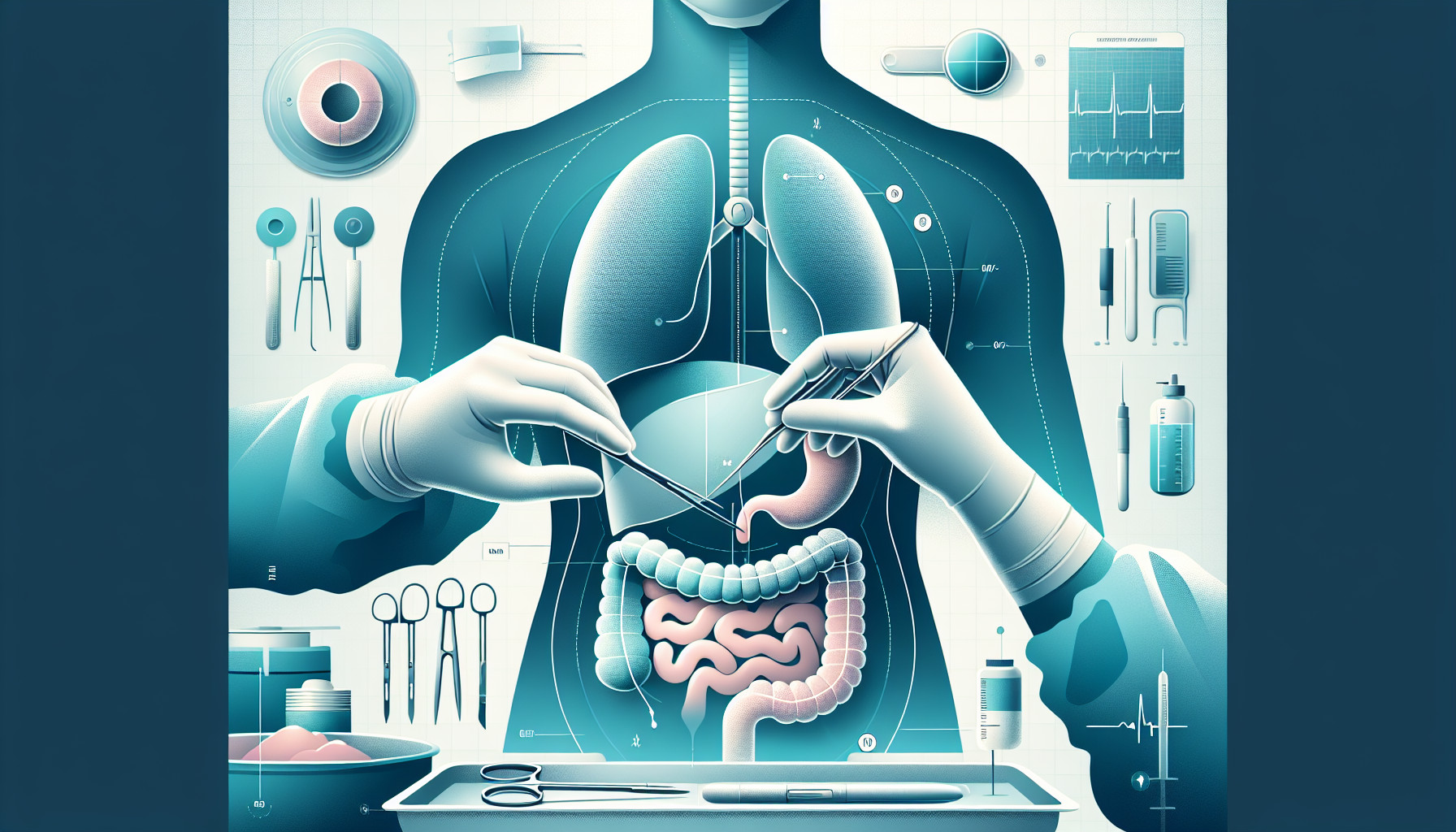Our Summary
This research paper looks at a treatment for gastroesophageal reflux disease (GERD), a digestive disorder where stomach acid frequently flows back into the tube connecting your mouth and stomach. The treatment is called Magnetic Sphincter Augmentation (MSA), and it’s been shown to be safe and effective. Initially, MSA was used for patients with GERD and small hiatal hernias (a condition where part of the stomach pushes up through the diaphragm muscle). However, this study aimed to look at how effective MSA is over a long period for patients with larger hiatal hernias.
The researchers looked back at patients with GERD and larger hiatal hernias who had undergone MSA and hernia repair between 2009 and 2016. They measured things like the patients’ quality of life relating to GERD both before and after the operation, changes in the esophagus, the need for further procedures, and if the hiatal hernia came back.
The study found that MSA, combined with hernia repair, is successful over the long term for patients with GERD and large hiatal hernias. The treatment significantly improved symptoms, reduced the severity of esophagitis (inflammation of the esophagus), and led to a regression in Barrett’s esophagus (a complication of GERD) in 40% of patients. Only a small number of patients needed further operations, and factors like age, body mass index, the size of the initial hiatal hernia, and sex didn’t affect whether the hernia would come back.
FAQs
- What is Magnetic Sphincter Augmentation (MSA) and what conditions is it used to treat?
- How effective is MSA in combination with hernia repair for patients with GERD and large hiatal hernias in the long term?
- What factors were found not to affect whether a hiatal hernia would reoccur after MSA and hernia repair treatment?
Doctor’s Tip
A helpful tip a doctor might tell a patient about hiatal hernia repair is to follow post-operative care instructions carefully, including avoiding heavy lifting, sticking to a soft diet, and taking prescribed medications as directed. It’s also important to attend follow-up appointments to monitor progress and address any concerns. Maintaining a healthy weight and avoiding trigger foods that worsen GERD symptoms can also help prevent a recurrence of the hiatal hernia.
Suitable For
Patients who are typically recommended for hiatal hernia repair include those with gastroesophageal reflux disease (GERD) and large hiatal hernias. These patients may experience symptoms such as heartburn, regurgitation, chest pain, difficulty swallowing, and nausea. Hiatal hernia repair may be recommended for patients who do not respond well to medications or lifestyle changes, and for those who have complications such as esophagitis or Barrett’s esophagus. Additionally, patients with hiatal hernias that are causing significant discomfort or affecting their quality of life may also be recommended for repair.
Timeline
Before the hiatal hernia repair, a patient may experience symptoms of GERD such as heartburn, regurgitation, chest pain, difficulty swallowing, and a chronic cough. They may have undergone various tests and treatments for their GERD, including medications, lifestyle changes, and possibly other surgeries.
After the hiatal hernia repair, the patient can expect relief from their GERD symptoms as the repair helps to prevent stomach acid from flowing back into the esophagus. They may experience some discomfort and need to follow a special diet for a period of time to allow the repair to heal properly. Over time, the patient should see an improvement in their quality of life, with reduced symptoms and potentially a regression of complications like Barrett’s esophagus. Regular follow-up appointments with their healthcare provider will be necessary to monitor their progress and ensure the long-term success of the repair.
What to Ask Your Doctor
Some questions a patient should ask their doctor about hiatal hernia repair include:
- What are the potential risks and complications associated with the hiatal hernia repair surgery?
- How long is the recovery period after the surgery, and what can I expect in terms of pain and discomfort?
- Will I need to make any lifestyle changes or follow a specific diet after the surgery?
- How long will it take for me to see improvement in my symptoms after the surgery?
- Are there any alternative treatments or procedures available for hiatal hernia repair?
- How often will I need to follow up with you after the surgery, and what will be involved in these follow-up appointments?
- Will I need to take any medications after the surgery, and if so, for how long?
- What are the chances of the hiatal hernia coming back after the surgery, and what can I do to prevent this from happening?
- Are there any long-term effects or complications that I should be aware of following the surgery?
- Can you provide me with any resources or additional information about hiatal hernia repair and what to expect during the recovery process?
Reference
Authors: Dunn CP, Zhao J, Wang JC, Patel TA, Putnam LR, Eka A, Houghton CC, Bildzukewicz NA, Lipham JC. Journal: Surg Endosc. 2021 Oct;35(10):5607-5612. doi: 10.1007/s00464-020-08063-9. Epub 2020 Oct 7. PMID: 33029733
